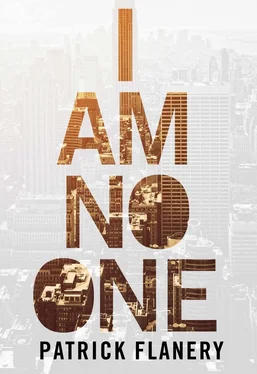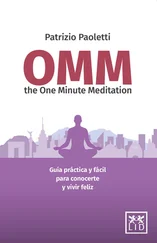‘He doesn’t answer when I try to phone. He doesn’t reply to my emails or text messages. I don’t know him anymore.’
I could not help wondering where Stephen Jahn might be in all this, what role he had assumed. His complexion was such that he could pass as Egyptian, though his features were Italianate and I thought I remembered there was an Armenian grandmother as well. Might he have been there, among the crowds of protestors, or moving like a ghost between the putatively democratic and the unapologetically despotic, reporting the identities of the demonstrators to those men still clinging to power? And what of Saif, the man I was sure Stephen loved, for the name had continued to blow into his conversation over the years, often late at night in the SCR, when only he and I and perhaps one or two sympathetic others remained, deep in our cups after a High Table dinner, and someone, as often as not myself, would venture to ask how Saif was doing and whether Stephen had seen him recently, and then Stephen would almost invariably nod his head and say, like the doting uncle he imagined himself to be, or the lover of a much younger mistress, ‘he is doing very well indeed, thank you for asking, though I worry about him sometimes, there are people. . who could make things impossible for him, so one must be very careful. Discretion.’
Still, such conversations gave almost nothing away. Stephen never said in so many words that Saif was his lover, and to assume this was the case would, I think now, be to fall into a certain kind of trap, perhaps a trap of Stephen’s own design.
A week or so later Fadia reported that her parents had fled to London, and though her mother came up to Oxford for a day, Fadia did not go down to see them until the break between Hilary and Trinity terms. When she returned for her exams that last summer term of her MPhil she had lost whatever glimmer of innocence I might have detected in the past. I do not recall any conversations over the course of those months about the status or welfare of her parents, though I knew that other Egyptian officials who had fled the country were having their assets frozen by the British government; the policy seemed to be applied in a typically patchy and inconsistent way, as if some former despots were better friends than others. Stephen Jahn came and went and seemed, although it might have been my imagination, to avoid speaking with me. Whether he and Fadia saw each other — if indeed they ever saw each other — I could not say. Stephen’s flat at Folly Bridge Court was in a part of the city I rarely had occasion to visit unless someone happened to propose meeting for a drink at the Head of the River pub or if I decided to go down to support the College at Eights Week when that stretch of the Thames known locally as the Isis is fat with lean young bodies pushing wood through water.
The History Faculty accepted Fadia’s application to read for a doctorate with the understanding I would supervise her further research into the role of media and cinema in the formation and critique of leftwing European terrorism. British doctoral studies are significantly different from what happens here in America, where a committee of academics looks after a student’s progress through the writing of his or her dissertation, and only then after two years of demanding coursework and oral examinations. In Britain, a doctoral student has only one or at most two supervisors for her thesis, and there is no coursework, only ‘pure research.’ In practice this means that, depending on the supervisor, things can either go very well or very badly — or, as in the vast majority of cases, the student muddles along in an unexceptionally adequate and thus eminently British way.
Over that summer, Fadia moved out of her rooms on Museum Road and into a College-owned house on Divinity Road, across the street from my own house. She had been assigned the bedroom on the top floor, its bay window facing the street and thus, also, my own master bedroom and living room, both of which were at the front of my semi-detached redbrick Victorian. Divinity Road is a street of multiple characters, and in our particular stretch — up the hill but still on the straightaway before it begins to curve round to meet the Warneford Hospital, originally the Oxford Lunatic Asylum on its foundation in 1826—it was so narrow it felt as though the people across the way were almost as proximate as those on either side.
At first I thought nothing of our being neighbors, supervisor and student, members of the same College, our lives drawing closer together as years passed, two lives intertwining as naturally as the tendrils of a climbing rose find their way through the bars of a trellis. One of my colleagues in Anthropology had let a room in his house to one of his doctoral students, though no one in College seemed to think this was a particularly good idea and I remember now that the student in question found the house so dark and cold and my colleague of so eccentric a disposition that she left well before the period they had agreed she would stay.
As autumn closed in and winter once again approached, fogs rolling in off the rivers and filling the streets of Oxford with a ghostly mist, I happened one night to wake with a start. I got out of bed, shuffled down the hall to the bathroom, and returned to the bedroom. I was about to get back into bed when I noticed a light from outside. Drawing my curtains aside, I looked out on the street awash in yellow lamplight and in the house opposite Fadia’s blinds were open, her lights burning. She stood in the window, wrapped in a white robe, speaking into her phone. There was no mistaking that she was upset, her shoulders and arms moving with agitation, and after ending the call she sat down at her desk in the bay window and stared out at the night.
I stepped backwards into the deeper shadow of my room but her head lifted as if she had seen me standing there, or at least had been aware of my movement, of an observer shifting out of range of her observation. My heart lurched and I held my breath, perhaps even cursed myself, but did not immediately retreat to bed, instead standing in the dark and watching my student watching me. Her gaze soon turned away from me to follow a cyclist flying down the hill towards the Cowley Road. Then, with a movement that seemed too casual not to be considered, she closed her blinds and put out the light.
Doctoral supervision at Oxford being what it is — sometimes no more than one meeting each term — I did not have occasion to see Fadia alone until the following January. By that time, I confess, I had started making a habit of noticing when I went to bed whether her blinds were open or closed, when she was home, what she had been wearing that day, if she took a shower before bed or first thing in the morning, whether she went out every day to work in the library or chose to stay home and sit at her desk, when she had friends come to visit for tea or lunch or dinner parties with her other housemates, and if she went out with young men, or indeed with young women, for I did not presume to know the nature of her affections, or, to be blunt, her sexual self. In all those days of watching I never saw her alone with anyone, but always in a larger group.
Stephen Jahn returned to College around the same time, and I discovered that he had been in Egypt for almost the whole of the previous year, only coming back to Oxford for short periods since the beginning of the revolutions that had rippled across the Arab world. When I asked what he had been doing during his time away, he implied that it was official and highly classified government business.
‘Which government?’ I wondered aloud, sitting alone with him in the SCR late one February evening.
‘Which do you think?’
‘You’re American, so I assume it must be ours, and at the same time I think it would be naïve of me to assume anything about you or your affiliations is straightforward. Do you work for ours?’
Читать дальше












